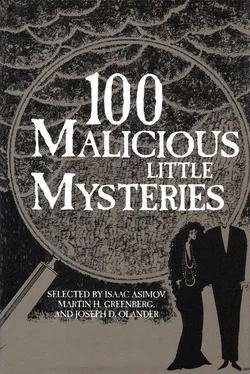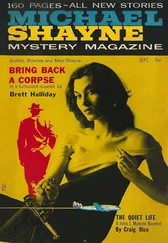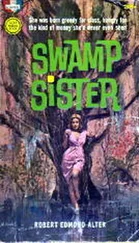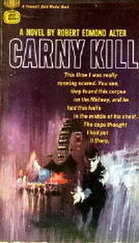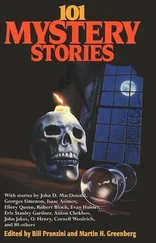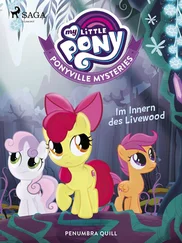She dropped the yarn when the bell rang and went to the door. Peeking around the side of the curtain, she was relieved to see the doctor standing there.
“Dr. Reed, oh, thank you so much for coming over so quick. I’m so grateful—”
He brushed past her and strode into the hall.
“That’s all right, Mrs. Forte. Where is he?”
“What?”
“Joe. Where is he?”
“Oh. Well, if you could — if we could just talk for a bit first, in the kitchen, maybe?”
He sighed. “I really haven’t too much time, Mrs. Forte. It is Saturday afternoon, you know, and my office hours were supposed to be over an hour ago.”
“Please, Doctor?”
She stood there, her eyes pleading, and when she turned and went ahead of him into the kitchen he shrugged and followed her.
“A cup of coffee for you. Doctor?”
“No, I—”
“Ah, coffee for the good doctor. No matter how rich and important he gets, he still comes to our house to take care of us. For the good doctor a nice cup of coffee. Here, let me—”
She poured the steaming liquid into one of her two best china cups and pushed it across the table to him.
Sighing again, he picked it up and sipped. “These old women. These old women!” he thought with exasperation. “ ‘A cup of tea? A cup of coffee?’ And if you decline their hospitality they get so damned offended.”
“Now,” he said aloud, “what about Joe?”
“He’s in his room. Doctor, just sitting on his bed, staring at nothing. Been like that since he got home last night. He wouldn’t talk to me or nothing. Couple of hours ago he sort of came out of it for a few minutes and told me what the matter was, but then he turned his head away. He had tears in his eyes. Tears! My Joe!”
She shook her head with the memory of it.
“You’re not drinking your coffee, Doctor,” she said then.
“I am. I am. Please go on. ”
“Well, my Joe, he’s an important man, really. In this group, you know.”
“No, I don’t know.” He drank the last of his coffee and started to rise.
“Doctor!”
The tone of her voice startled him and he sat down.
“The group,” she went on, “they call it ‘Our Thing’.”
Ignoring the intent look on the man’s face, she said, “They — the bosses, they gave Joe a job to do. And he has to do it. When they say do something, you do it or else, right?”
“Uh-huh,” replied the doctor.
“But my Joe, he’s so sensitive! He was always the most delicate of my boys.”
She smiled, remembering. “When he was only, oh, eight or nine, he fell off his bike and you had to sew up his knee. He fainted, remember? That’s how he is, Doctor. A real man, you understand, but so sensitive. ”
Dr. Reed grunted.
“Well, it seems like there’s this man around the neighborhood who’s been — how did Joe put it? — ‘horning in on the drug traffic’ or something like that. And, see, they told Joe to get rid of him — to kill him, you know. Because they don’t like no competition, they don’t like that at all .
“But my Joe, he just couldn’t do it. ‘Maybe a stranger. Ma,’ he said, ‘but not—’. And he started to cry. Cry! Think of how I felt, his mother, when I saw them tears running down his face!”
“Ah,” said the doctor.
“This man Joe’s supposed to kill, he’s a real respected man around here. A doctor... Doctor?”
She watched impassively as the doctor slid off the chair and landed on her kitchen floor with a thud.
He hadn’t, she noted with relief, broken her china cup in his fall. She picked it up and carried it over to the sink, scoured it and the coffee pot with extra care; then, stepping over the doctor, she went to her son’s room. “Joe? Joe!”
He turned and looked at her dully. “What, Ma?”
“It’s all taken care of, just like I said. Come into the kitchen and look!”
That’s Ma for you. She always takes care of her boys.
The Adventure of the Blind Alley
by Edward Wellen
Feeling his way through the pea-soup fog, Police Constable Cooper paused at the noise of a struggle. He stared hard to hear. At the first outcry and the noise of scuffling his hand had whisked to his whistle. But before he could blow a blast to frighten off the attacker, he heard the sickening sound of a cosh on a skull, then the thump of a falling body.
He withheld the blast and with heavy caution, in order to catch the assailant red-handed, he lifted his boots towards the rough breathing and the tearing of cloth.
P.C. Cooper smiled tightly to himself. He knew this to be a narrow cul-de-sac and himself to be between the attacker and escape. He had the culprit all but in his arms.
He winged out his cape and moved slowly but steadily into the blindness of the alley. But a kerb leaped out of nowhere. P.C. Cooper’s stumble and his muffled oath warned the attacker. The constable blew a savage blast. “In the name of the law, stand fast!”
P.C. Cooper heard fleeing footsteps, the ring of a hobnailed boot striking an iron mudscraper, then the creak of a door and the snick of a latch. The culprit, then, was a denizen of this unsavoury alley.
The constable swore under his breath. He had his man — and yet he did not have him. He knew there were a half-dozen doors on either hand. Unless the constable located the right door straightway, the culprit would have time to change from his wet outer clothes and to hide what he had stolen from the victim.
The victim. A dozen paces deeper into the alley, and the constable saw the shape of the victim on the cobblestones.
Feeling sudden clamminess and chill, P.C. Cooper stood over the fallen man. He eyed a familiar hawklike profile, a bloodied deerstalker cap, a still-clutched violin case. Rents showed in the victim’s clothes where hurried hands had torn away a watch chain and snatched a wallet. That the mighty manhunter should have fallen prey to a common robber!
The victim stirred. A word came forth. “Constable...”
P.C. Cooper knelt, careless that his knee touched the wet stones. The blood-blinded face had not turned towards him. How had the man known to call him constable?
The whistle, of course. The habits and skills of a lifetime would not have failed him even in the direst of moments. Though stunned, the great detective would have taken note of some clue, and most likely clung to consciousness now solely to impart that clue.
“Sir, did you see your assailant? Can you describe him?”
A painful shake of the hand.
“Do you know where he ran to?”
A painful nod.
P.C. Cooper’s heart surged, but the man only consciousness enough to point vaguely and gasp, “A flat...”
The constable grimaced in disappointment. The great detective had told P.C. Cooper only what P.C. Cooper already knew.
A flat, indeed! This was an alley of roominghouses — nothing but flats.
P.C. Cooper removed his cape and wadded it under the great detective’s head as a cushion. Then the constable rose and duty took over. His whistle guided answering whistles.
Each blast, each echo, ached. It hurt him to think that his colleagues would find him simply standing there, waiting, while the culprit was safe behind one of those unseen doors.
A flat...
P.C. Cooper shook his head. Why should those words keep ringing in his mind? They had originated in the poor stricken mind of the great detective.
A flat...
Pounding boots pulled up. P.C. Cooper recognised the figure of P.C. Lloyd.
Lloyd was a Welshman, and Welshmen are famous for having perfect pitch.
Swelling with authority, Cooper seized Lloyd’s arm and pointed him.
Читать дальше
